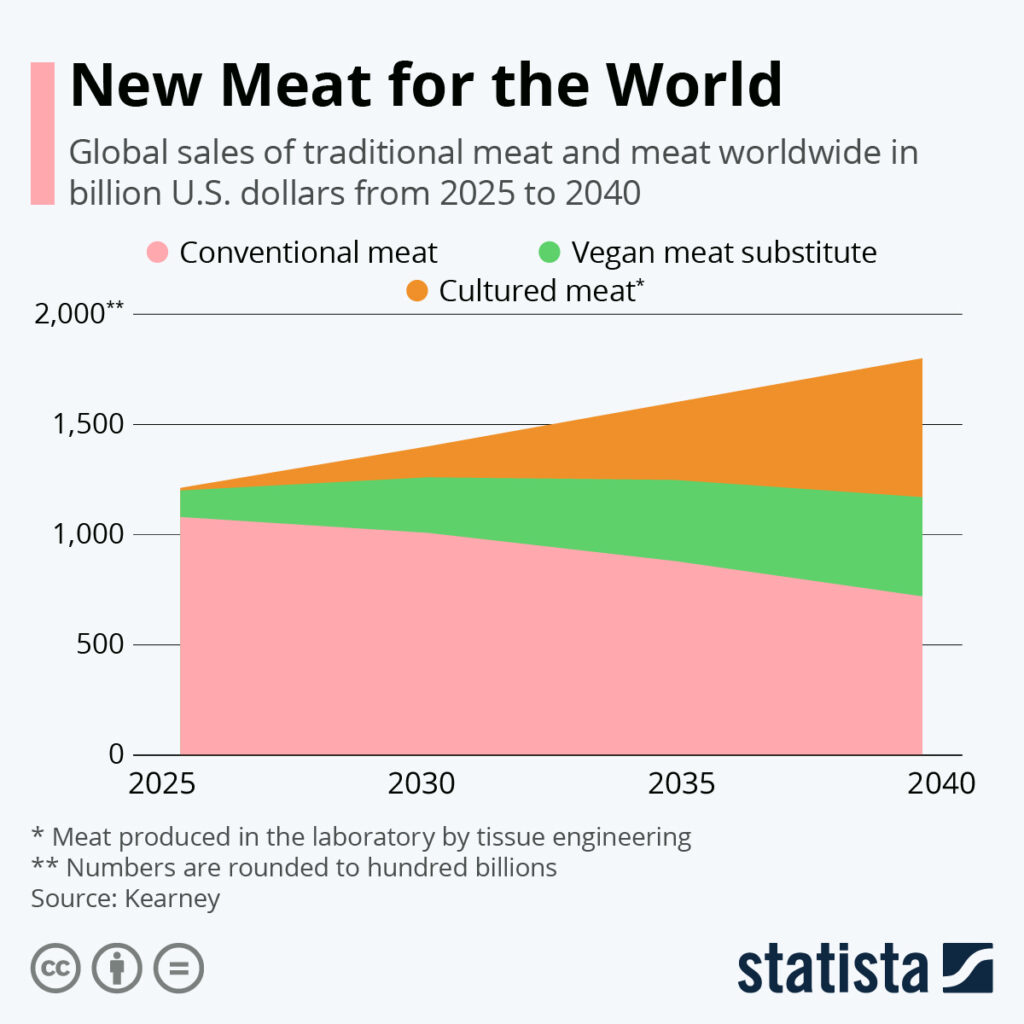As the global meat industry stands on the brink of a paradigm shift, the United States is poised to lead the charge. The recent green light for the sale of cultivated meat in the U.S. is not just a gig step for science, but also a potential economic boon that could reshape the landscape of agriculture and food industries in the country (and the world).
Cultivated meat offers a plethora of economic benefits that could stimulate growth and innovation. First and foremost, it has the potential to create a new industry sector. This implies new job opportunities, research and development advancements, and a surge in related ancillary industries such as cell culture media, bioreactors, and food processing technologies.

Moreover, the environmental efficiency of cultivated meat production could translate into economic savings. It requires less land, water, and energy compared to traditional livestock farming, which means lower production costs in the long run. A more sustainable meat supply chain will also help alleviate the financial burden posed by environmental degradation and climate change. One need only look at Singapore, the first country to approve cultivated meat, to see the economic promise of this revolutionary product. Singapore, with no significant livestock industry of its own, has turned this approval into an opportunity to attract innovative food tech companies, thereby strengthening its position as a global food and technology hub. It is also a perfect way to increase food sovereignty.
In contrast, Europe is still in the process of formulating regulations for cultivated meat. While some may argue that this cautious approach is warranted given the novelty of the technology, it is essential to note that each day of delay may mean missed opportunities. The European market, with its strong demand for sustainable and animal-friendly products, could greatly benefit from the introduction of cultivated meat. However, it’s important to note that regulation isn’t merely about economic benefits—it’s also about ensuring safety and transparency. A well-regulated market will ensure that cultivated meat products meet high safety standards and are clearly labeled, so consumers can make informed choices. This aspect of regulation is something that Europe, with its strong tradition of food quality and safety, can certainly appreciate and defend. It will be a key factor for the Chinese market foe example.
While it’s clear that the U.S. has taken a significant step forward with the approval of cultivated meat, this doesn’t mean that Europe is falling behind. Instead, it offers a unique opportunity for European countries to learn from the U.S. and Singapore, and to formulate regulations that not only safeguard public health but also stimulate economic growth and innovation. We, at FUDZS, are enthusiastic about the recent developments, and we are confident that this will catalyze the economic development of the cultivated meat sector in Europe. With the right regulatory framework in place, FUDZS and similar startups can potentially create new jobs, stimulate investment, and drive economic growth, all while contributing to a more sustainable and ethical food system.
The future of meat is being reimagined, and it’s a future that we can all look forward to.
